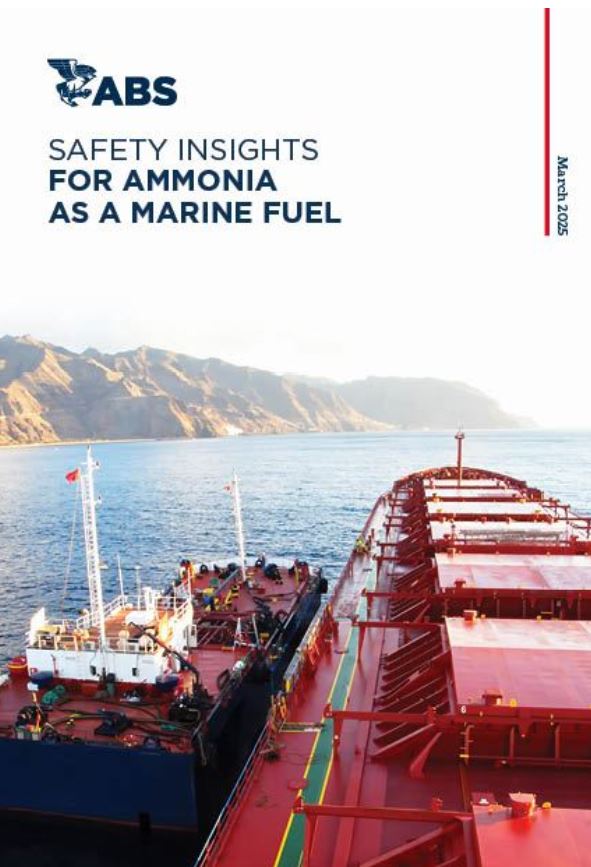 ABS has released a report titled Safety Insights for Ammonia as a Marine Fuel, addressing safety considerations for ammonia as a marine fuel.
ABS has released a report titled Safety Insights for Ammonia as a Marine Fuel, addressing safety considerations for ammonia as a marine fuel.
The report compiles findings from ABS research on ammonia performance in maritime applications. ABS conducted computational fluid dynamics (CFD) simulations to assess risks associated with ammonia dispersion in accidental leakage scenarios.
The research examined bunkering situations, including ship-to-ship, terminal-to-ship, and truck-to-ship operations, as well as ammonia dispersion from a vessel due to an engine room leakage incident.
“This publication provides a comprehensive report of ABS’ efforts to address the challenges and opportunities presented by ammonia as a marine fuel. Through detailed analysis of ammonia dispersion studies and emergency evacuation protocols, ABS is contributing to the discourse on safe and supportable maritime fuel alternatives, fostering a culture of preparedness and resilience,” said Vassilios Kroustallis, ABS Senior Vice President, Global Business Development.
The report incorporates industry best practices and advancements in software and hardware, including acoustic cameras for detecting and visualizing ammonia leakage. It outlines a three-part framework for owners and operators evaluating ammonia as a fuel source: proactive regulatory engagement and risk anticipation; development and implementation of a multifaceted safety framework combining qualitative and quantitative risk assessments; and real-time monitoring and optimized emergency response.
American Bureau of Shipping (ABS), founded in 1862 and headquartered in Houston, Texas, is a global classification society providing safety, technical, and regulatory services to the maritime and offshore industries. ABS sets standards for ship design, construction, and operation, ensuring safety and environmental compliance.



